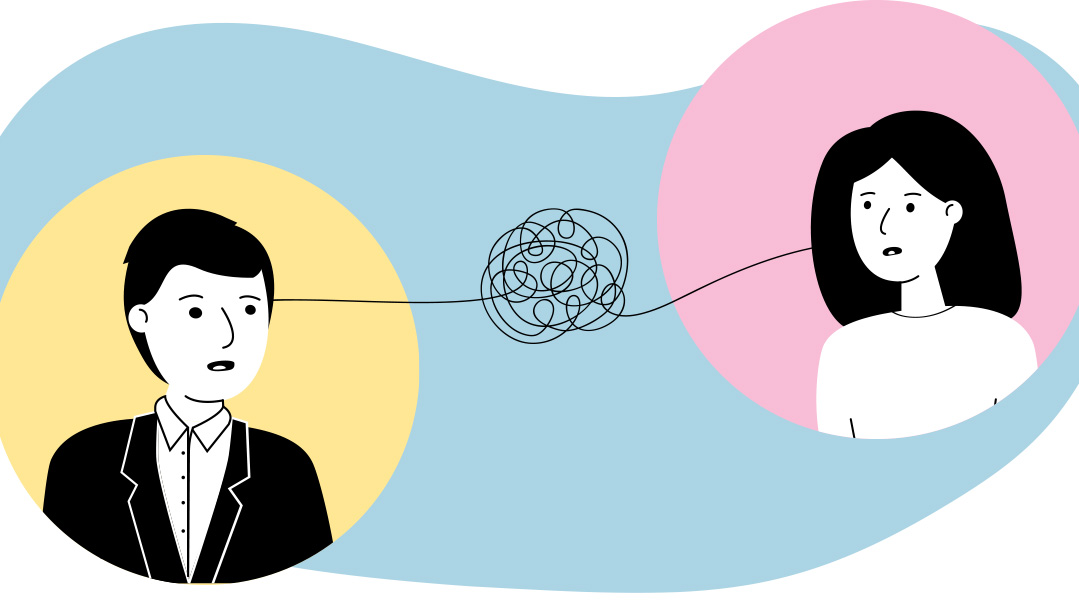Mindscapes
| August 16, 2022Both should feel like marriage therapy is a step they want to take

Mindscapes
Abby Delouya RMFT-CCC, CPTT
Quick Tip: Prep for Effective Marital Therapy.
1) Make sure both of you are 100% invested in attending therapy. One partner may have more concerns or reservations about the therapeutic process, but both should feel like marriage therapy is a step they want to take.
2) Discuss shared goals. Goals may include discussing conflict style, attachment style, communication style, among any other more obvious issues.
3) Research the right fit: find out the therapist’s specialty. Not every marriage therapist is equipped for every problem. Issues connenected to addiction and other mental health problems require a therapist who has training in that specific area.
4) Allot time before and after the session — even just 15 minutes — to ground yourself and/or connect with each other.
5) Get ready to share personal history — your thoughts, memories, stories, and feelings are all relevant even if it doesn’t have a direct connection with the coupleship.
6) Being nervous before starting or not feeling comfortable right away is very normal. If you don’t feel comfortable or safe after a couple of sessions, however, terminate and look for a different therapist.
Relationship Reflections: The Friend Balance
When we get married, it’s difficult to transition from being a single girl or yeshivah bochur to a couple. Oftentimes, the newlyweds slink into oblivion and it may take several months or even years for the individuals to reclaim their friendships. Distance can affect old friendships, however, as we grow into new roles as employees or parents, our circle of friends usually evolves along with that.
How much time is too much time for friends and friendship building? Should Hubby be out every night after maariv hocking with the oilem? Should Wifey plan spa days or regular dinners out with girlfriends? The answer depends a lot on personality and the needs of the marital relationship.
If the marriage is put first, and the couple has adequate time to connect and grow in their friendship with each other, there’s not really a set amount of time for others; what works, works. In fact, it’s important to develop strong relationships outside of the marriage and not depend on our spouse to be our sole beacon of happiness.
Check in with your partner about how they feel about time spent away, and the type of friends you have. Allow the other’s friend time to become a way you give to each other.
Jargon Decoded: “Gaslighting”
Gaslighting is a form of manipulation that often occurs in emotionally abusive relationships. It’s covert and sneaky — the abuser or bully misleads the target and makes them question their judgments and reality (crazy-making). The victim of gaslighting starts to feel unsure about their own perceptions and wonder if they’re losing their sanity.
People who gaslight will: lie (often habitually or pathologically); discredit you; distract you; minimize your thoughts and feelings; rewrite history and shift blame. Common statements may be: “You’re making things up,” “That never happened” (when you know it did), “You’re crazy/emotionally unstable”, “Calm down”, and “Why are you so sensitive” among many others. When you deal with someone who never acknowledges your thoughts, feelings, or beliefs it can be extremely isolating and shaming. Reach out for help.
In the News: Travel Therapy?
New research has emerged that tourism/travel can be an effective therapy to alleviate some symptoms of dementia and other mental health issues. Travel restructures our minds through sensory and cognitive stimulation.
It’s important to do your research — traveling to a foreign country/culture unprepared can have jarring effects, yet the overall research suggests that traveling offers social and emotional experiences that boost happiness hormones — dopamine, serotonin and oxytocin — and provides a mental and emotional escape. However, if traveling isn’t possible, remember that the mind actually doesn’t differentiate between imagining and actually doing something, so meditation and visualizing the vacation of your dreams can also give that much needed brain boost.
Oh for OK
Shoshana Schwartz
Most of us live life on a double track — the me that’s doing and being, and the me that’s observing me do and be, while providing a running commentary.
If my observer is kind, uncritical, and accepting, I’ve acquired a lifelong companion who’s pleasant and helpful. Even if she points out mistakes or flaws, I can probably feel grateful for the awareness she brings me.
However, if my inner observer is critical, harsh, and judgmental, she’s like a bully who never stops antagonizing, and always has the last word. We employ myriad ways to mitigate her invective — we contradict, deny, argue, distract, or throw our hands up in despair. Yet the more we protest, the louder she gets! And she doesn’t seem to have a volume control or an off switch.
One way to cope with this bully is to respond with a simple “oh.”
Your house is such a mess!
Oh.
Instead of arguing, denying, or trying to drown her out, I can purposefully tune in and then say, “Oh.”
Oh, you’re saying I’m always late. You’re right, and I’ll consider if it’s the time to work on that.
Oh, you’re saying I’m a failure. Right now I’m too flustered to ponder that, but when things calm down I’ll evaluate whether or not your argument has merit.
Oh, you’re calling me a monster. I did raise my voice when I could have spoken calmly. I wonder if that makes me a monster.
Oh, you’re saying I’m stupid for burning the rice. Yes, I did let the rice burn.
It takes practice to listen to what the observer is saying without getting defensive. But the more we embrace “oh,” the better we get at turning the up volume on other voices besides the bully.
Shoshana Schwartz specializes in addiction and codependency. She gives in-person and online addiction prevention lectures and workshops to education and mental health professionals, community leaders, and parent groups, as well as 12-Step workshops for non-addicts.
Connect with Speech
Dina Schoonmaker
The Torah commands us “lo sisna es achicha bilvavecha — do not hate your brother in your heart.”
How is hatred defined? The mishnah in Sanhedrin teaches that avoiding someone and not speaking to them for three days constitutes hatred. This is true only when the avoidance cycle is fueled by animosity (as opposed to needing some space in order to reconnect).
Cold wars aren’t passive; they perpetuate negative cycles. Let’s actively attempt to communicate, and thereby foster strong relationships.
Dina Schoonmaker has been teaching in Michlalah Jerusalem College for over 30 years. She gives women’s vaadim and lectures internationally on topics of personal development.
(Originally featured in Family First, Issue 806)
Oops! We could not locate your form.







